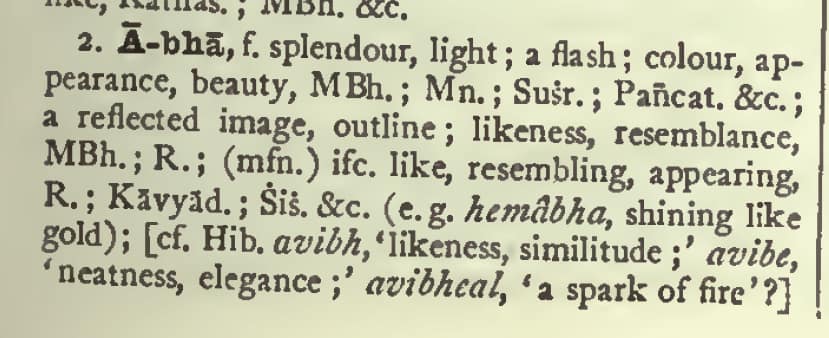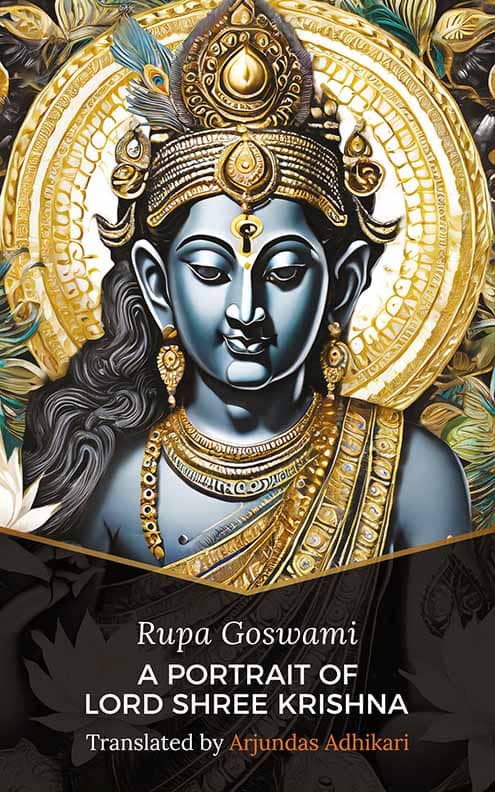
Faithful representation of exchanges of feelings between characters has always been a central objective for the Sanskrit playwright, no less so in the spiritual drama Vidagdha Madhava, aka, A Portrait of Lord Shree Krishna, by Rupa Goswami (translated into English by Arjundas Adhikari). Specious representations of feelings in Sanskrit literature are a major faux pas, and this particular fault is classified as rasabhas:

Rasabhas is a combination of two words: rasa and abhas.
Rasa means the whole range of sentiments, and its definition is outlined on p. 689 of Monier-Williams’ Sanskrit-English dictionary:

The same Sanskrit-English dictionary has the following definition for the word abhas:

The ambition in translating an Indian spiritual drama like Vidagdha Madhava by Rupa Goswami into English, is to preserve the sentiments expressed in the dialogue and not skew them in the process of translating. If sufficient care is not taken, the play’s characters will lack credibility because they will appear to have self-contradictory natures. This flaw is called rasabhas.
But as long as the plot is properly followed, and Sanskrit words carefully researched, rasabhas can be avoided. To highlight this I would like to focus on a small section from Act II of Lalita Madhava by Rupa Goswami. Half way through the act, the cowherd girl Radha, jealously complains that she thinks a berry necklace Krishna is wearing is too hard. Radha’s friend points out that because Radha’s jewel necklace is also hard, Radha should not criticise the berry necklace’s hardness. The implication is that, if Radha ever embraced Krishna, Radha’s hard jewel necklace might cause Krishna some discomfort. For Radha, this is an embarrassing moment, because, as a genteel, lady-like girl, She is trying to keep Her feelings for Krishna to Herself. Radha’s friend goes on to impishly insist Radha should remove Her jewel necklace if She is going to go on criticising the hardness of a berry necklace. The Sanskrit in this regard is:
kathora stana mani vinirdhutaya
(kathora – hard, stana – bosom, mani – jewel, vinirdhutaya – remove)
Which is: (then you should) “remove the jewel-hard necklace that rests on your bosom.” However, there is a lamentable preponderance of mis-translated versions of this such as: “where is there a hardness that matches your jewel-like breasts?” (!!?) as if this were the reason Radha shouldn’t criticise the berry necklace’s hardness! In this (mis) translation, due diligence is apparently deficient in the translator, since we are left with no clue as to the discreet, humorous and clever nature of the exchange revealed in true translation. Besides being an example of rasabhas, this apparent disregard for subtlety and sublime characteristics disserves Rupa Goswami’s standing as an author of merit.
Arjundas Adhikari

